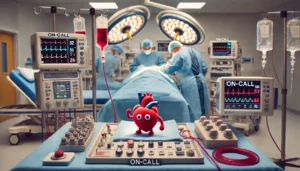
Global Perfusion Practice Survey: Readiness of On-Call and Emergency Operation Rooms
This survey examines the readiness of on-call and emergency operation rooms for perfusion-related procedures during urgent situations in cardiac surgery. Data from 236 healthcare professionals highlight varied preferences for circuit readiness, influenced by caseload, response times, and other factors. The study underscores the need for standardized protocols to enhance perfusion safety and improve patient care.










